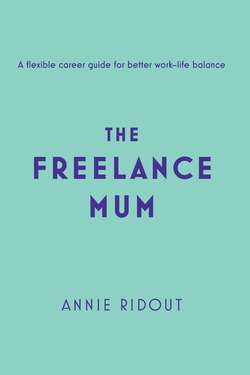Читать книгу The Freelance Mum: A flexible career guide for better work-life balance - Annie Ridout - Страница 26
Dealing with isolation
ОглавлениеWhile I’m generally OK with my own company, there were definitely times – particularly in the dead of winter – when my daughter was at nursery, and before my son was born, when the house felt incredibly quiet, and I longed for some human contact. Sometimes, I’d go to the shop just so that I could have a chat with someone. Or phone my sister. When my son was at home with the childminder, I had to vacate, so I’d work in public spaces, meaning I was surrounded by activity. I still go now, if I feel lonely. Although I don’t intend to meet up with anyone – I’m there to work – I’ve actually made friends at my local coffee shop with people who are also freelance, and there to work. So we’ll have a quick chat, or give each other some advice, then get our heads back down. Working in this way – surrounded by other people who are also tapping into their laptops – makes me forget how isolated I sometimes felt when I worked from home.
Sali Hughes – author, columnist for The Pool, Guardian and Empire, and event host – says that the social aspect of office work can be felt as a real loss when you go freelance. ‘Lots of women really struggle when they go freelance with the fact that they’re not in a team any more. They don’t have those water-cooler moments. You have to embrace social media, but know when to stop. Be able to manage the loss of the social aspect.’ She used to enjoy managing people in the workplace, as well as coming in and talking about what was on the telly. ‘But now I’ve got Twitter and Facebook for that,’ she says. ‘After my first baby, it was the isolation that made me go mad. I didn’t know anyone with a baby, so I was really lonely. But after my second baby, there was Facebook – then Twitter. So I had people to talk to. As a journalist, if you’re a freelancer, it’s very solitary. Twitter and Facebook are the office. They’re your colleagues; people you speak to in place of physical co-workers. But then you’re reliant on yourself to stop messing about and get on with work. I strongly advise freelancers to block the internet between certain hours, using software. And if you need bustle, go to a coffee shop.’
Pragya Agarwal – designer, entrepreneur, journalist, TEDx speaker and mum of three, including two-year-old twins – agrees that becoming part of an online community, and using social media for real social interaction, can help to combat the isolation. ‘Working from home can be lonely,’ she says, ‘and I have written extensively for Forbes about how to manage loneliness as a freelancer. There are times when I do not speak to any adult for days, and so it is really crucial for me to have a strong community online. But I also try to go to some networking events when possible.’ (If the idea of ‘networking’ makes you feel panicked, there are lots of tips for making it more bearable – and even fun – in Chapter 9.)
